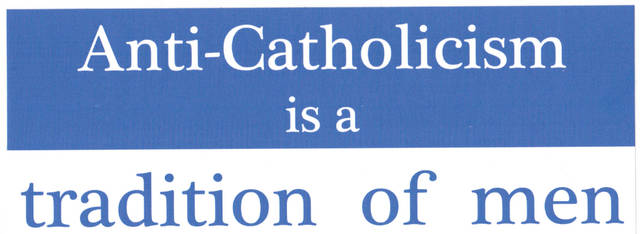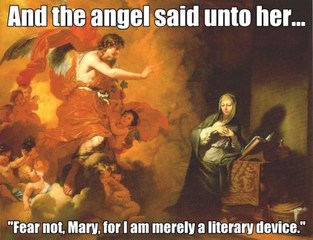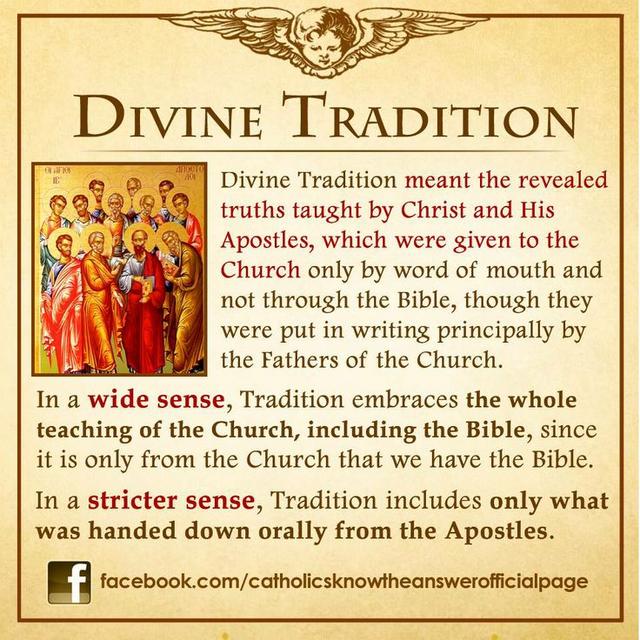Prayer Warrior
Well-Known Member
(b) The Roman Catholic interpretation assigns its own definition to the word “tradition” instead of interpreting the word within both the narrow and broad contexts of Scripture. The word (paradosis) translated as “tradition” or “ordinance” (KJV) in the New Testament refers either to: the immediate (face to face) instructions of inspired apostles (1 Cor. 11:2; 2 Thess. 2:15; cf. 2 Tim. 1:13-14; 2:21-2); the traditions of the Pharisaical Jews (Mt. 15: 1-3, 6-9; Mk. 7:6-9; cf. Mt. 5:31 ff; Gal. 1:14), that is the man made doctrines and commandments that the Jewish religious leaders added to Scripture; or, to the traditions of men in general whether Jewish or pagan (Col. 2:8).
(c) It is noteworthy that while the Bible commends traditions in the first sense (i.e., the direct, face to face, oral communications of the apostles) it strongly condemns all man made traditions in the religious sphere as untrustworthy and corrupting. The Roman Catholic concept of tradition has much more in common with Pharisaical Judaism than it does with Scripture. Rabbinic Judaism teaches that when Moses received the written law on Mt. Sinai, he also received a very lengthy unwritten tradition. Roman Catholics teach that the early church not only received the written revelation (the New Testament) but also all the oral teachings of Jesus and the apostles. Pharisaical Judaism asserts that the oral revelation was passed on to Joshua, the seventy elders, the prophets and then to the great rabbinic teachers in each generation. Papal doctrine asserts that the oral teachings of Jesus and the apostles reside with the bishops together with the pope and are made public generationally through decrees, pronouncements, official councils, the magisterium and so forth. Rabbinic Judaism has codified or committed to writing a huge body of their traditions in the Talmud (which in English translation runs to 34 large volumes of small print). The Roman Catholic Church has an even larger body of traditions in the writings of the post apostolic fathers, the decisions of councils (e.g. Trent, Second Vatican, Catechism of 1994), papal declarations, canon law and so on). The Jewish Talmud contains hundreds of blatant, explicit internal contradictions and clearly contradicts God’s Word in many places. The traditions of Romanism also contain many internal contradictions (see below) and also explicitly contradict written revelation (the Bible) in several key areas.
(c) It is noteworthy that while the Bible commends traditions in the first sense (i.e., the direct, face to face, oral communications of the apostles) it strongly condemns all man made traditions in the religious sphere as untrustworthy and corrupting. The Roman Catholic concept of tradition has much more in common with Pharisaical Judaism than it does with Scripture. Rabbinic Judaism teaches that when Moses received the written law on Mt. Sinai, he also received a very lengthy unwritten tradition. Roman Catholics teach that the early church not only received the written revelation (the New Testament) but also all the oral teachings of Jesus and the apostles. Pharisaical Judaism asserts that the oral revelation was passed on to Joshua, the seventy elders, the prophets and then to the great rabbinic teachers in each generation. Papal doctrine asserts that the oral teachings of Jesus and the apostles reside with the bishops together with the pope and are made public generationally through decrees, pronouncements, official councils, the magisterium and so forth. Rabbinic Judaism has codified or committed to writing a huge body of their traditions in the Talmud (which in English translation runs to 34 large volumes of small print). The Roman Catholic Church has an even larger body of traditions in the writings of the post apostolic fathers, the decisions of councils (e.g. Trent, Second Vatican, Catechism of 1994), papal declarations, canon law and so on). The Jewish Talmud contains hundreds of blatant, explicit internal contradictions and clearly contradicts God’s Word in many places. The traditions of Romanism also contain many internal contradictions (see below) and also explicitly contradict written revelation (the Bible) in several key areas.
The Roman Catholic argument for tradition from Scripture is an excellent example of inserting one’s own presuppositions into the text of Scripture. The idea that the apostle Paul was endorsing doctrines and practices introduced into churches many centuries after his death by corrupt popes and bishops, when he was simply instructing local churches in his own day to heed his own direct teachings is patently false and absurd.





